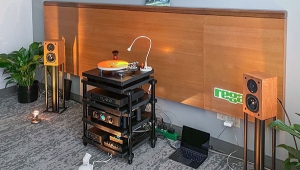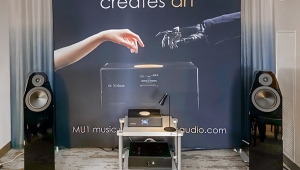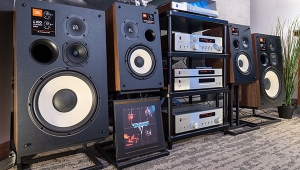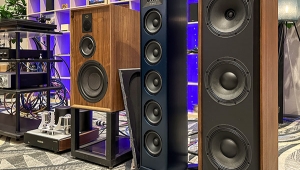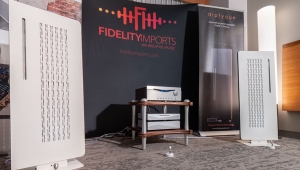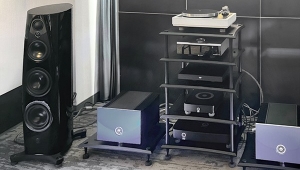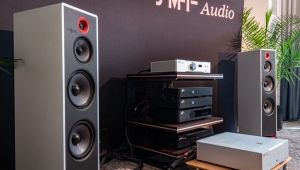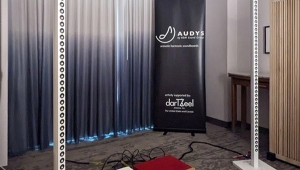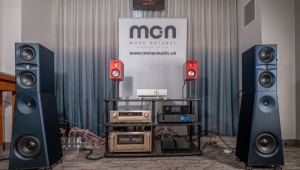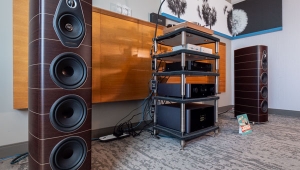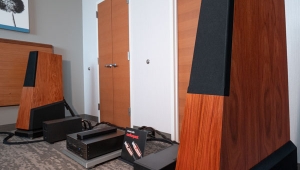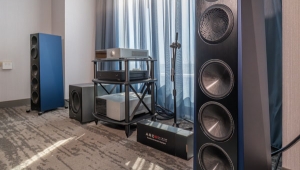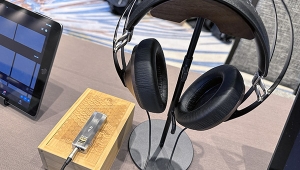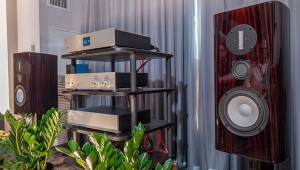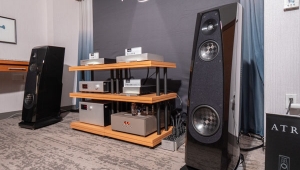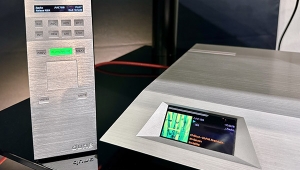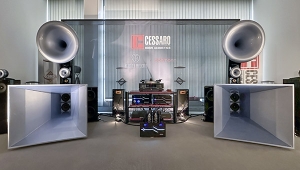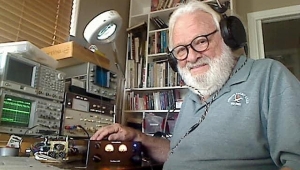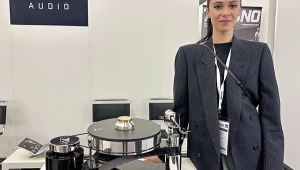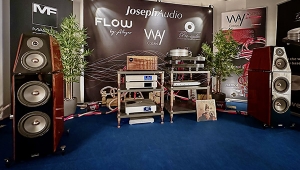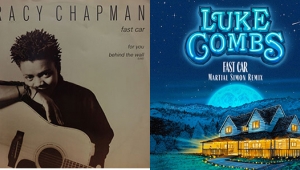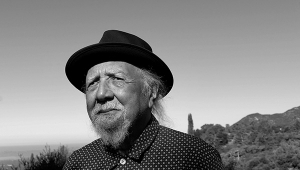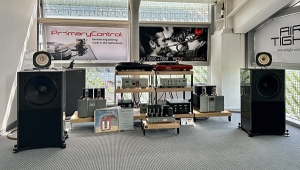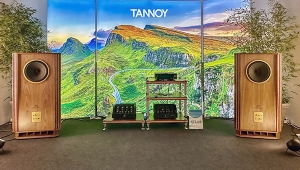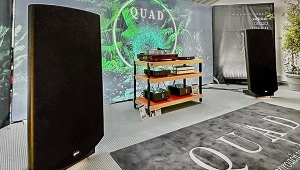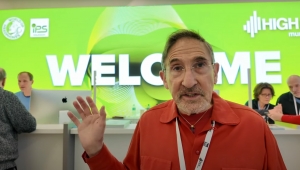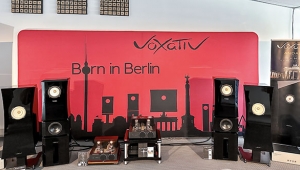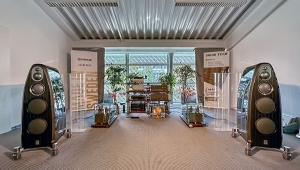| Columns Retired Columns & Blogs |
Bayz Audio, Chord Electronics, Aurender, Shunyata Research
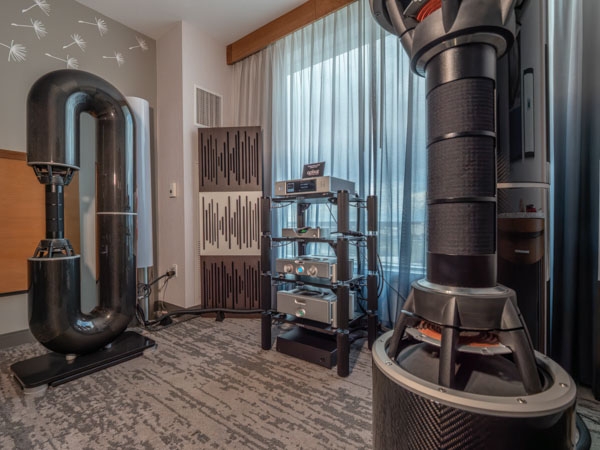
Going to an audio show is a bit like being a finalist in that old Monty Hall show where your prize is behind one of three identical doors. At AXPONA, there are more than 200 identical doors. You don’t know what you’ll get until you walk through, though I’ve found that the prevalence of pleasant surprises easily exceeds one in three. That’s better than the game show!
The treasure behind the door to room 732 was a pair of $160,000 Bayz Counterpoint 2.0 speakers. I’d heard them two years earlier but in a room with too many talkers. All I could really do at the time was admire the Counterpoints’ futuristic, Blue-Man-Group-meets-MBL aesthetic. This time, things were much better: the visitors listened, the speakers sang. Meanwhile, Zoltán Bay, their Hungarian creator, ran the demo and smiled contentedly as he watched people react. I noticed that his charming accent even made it into the company’s literature, which talks about the measurements of the omnidirectional BRS tweeters in terms of their “frekvency response.”

I loved Zoltán and I loved his bass-reflex-loaded floorstanders. As tall as a Dutchman, the Counterpoints are made of fat cylinders shaped like a staple or a flattened letter C. Their dual specialty: world-class dynamics and great immediacy. On paper, 9.5" mid-woofers could imply good bass without very deep extension. Integrated into the Bayz’ carbon-fiber monocoque, however, these drivers produce a bottom octave that throws a mighty punch, reaching down to ~23, 24 Hz, with SPLs up to 118dB.
Although the Counterpoints cost some very serious coin, buying the right amplification for them might be easier on the wallet—relatively speaking of course. Driving the speakers at AXPONA were Chord’s Ultima 5 power amplifier ($14,600) paired to the Ultima 3 preamp ($8,495). Together, their price is only 15% of what you’d shell out for a pair of the Counterpoints. An Aurender N20 music server/streamer ($12,500) and a Chord DAVE DAC ($14,000) completed the system, along with Shunyata’s multi-kilobuck cables and that brand’s $6,500 Denali power conditioner.

We played Archie Shepp’s interpretations of “Alone Together” and “Embraceable You,” followed by Blues Company’s slow-cooking “747.” Yello’s frenetic 1980s dance hit “Bostich” came next. Among my notes: “Clean but very much not clinical,” and “enough authority to make a masochist yelp with joy.”
- Log in or register to post comments
